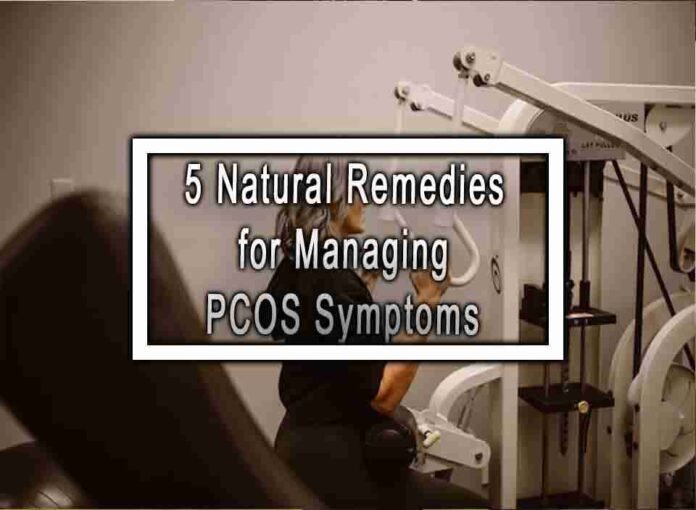Polycystic ovary syndrome (PCOS) is a hormonal disorder that affects many aspects of a person’s health, including the menstrual cycle, fertility, and metabolism. While medical treatment and lifestyle changes are often recommended, some natural remedies may help manage PCOS symptoms. Keep in mind that these remedies should be used in consultation with a healthcare professional. Here are five natural approaches:
Healthy Diet:
- Adopting a balanced and nutrient-rich diet can help manage PCOS symptoms. Focus on whole foods, complex carbohydrates, lean proteins, and healthy fats. Include plenty of fruits, vegetables, whole grains, and lean proteins in your meals. Avoid excessive sugar, refined carbohydrates, and processed foods, as they can contribute to insulin resistance.
Regular Exercise:
- Engaging in regular physical activity can improve insulin sensitivity and hormone regulation in individuals with PCOS. Aim for a mix of cardiovascular exercises, strength training, and flexibility exercises. Consult a healthcare provider before starting a new exercise routine.

Herbal Supplements:
- Some herbal supplements have shown potential in managing PCOS symptoms. For instance, cinnamon may help improve insulin sensitivity, while spearmint tea may have a positive effect on excess hair growth (hirsutism).
Stress Management:
- Chronic stress can worsen PCOS symptoms by affecting hormone levels. Practice stress-reduction techniques such as meditation, deep breathing, yoga, and mindfulness to help manage stress.
Adequate Sleep:
- Prioritize getting enough sleep, as poor sleep quality can negatively impact hormone balance and insulin sensitivity. Aim for 7-9 hours of quality sleep each night.
It’s important to note that individual responses to natural remedies can vary, and what works for one person might not work for another. Additionally, the effectiveness of these remedies may be limited, and they should not replace medical advice or treatment prescribed by a healthcare professional. If you have PCOS, it’s crucial to work with a healthcare provider who can guide you in creating a comprehensive plan that addresses your specific symptoms and needs.












